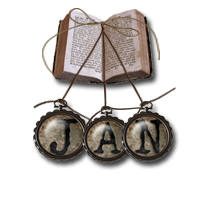Lady Catherine is one of Queen Elizabeth's favorite court maidens—until her forbidden romance with Sir Walter Ralegh is discovered. In a bitter twist of irony, the jealous queen banishes Cate to Ralegh's colony of Roanoke, in the New World. Ralegh pledges to come for Cate, but as the months stretch out, Cate begins to doubt his promise and his love. Instead, it is Manteo, a Croatoan Indian, whom the colonists—and Cate—increasingly turn to. Yet just as Cate's longings for England and Ralegh fade and she discovers a new love in Manteo, Ralegh will finally set sail for the New World.
Seamlessly weaving together fact with fiction, Lisa Klein's newest historical drama is an engrossing tale of adventure and forbidden love—kindled by one of the most famous mysteries in American history: the fate of the settlers at Roanoke, who disappeared without a trace forty years before the Pilgrims would set foot in Plymouth. (Publisher's summary from Goodreads)
Over the course of several years in my teaching career, I taught a couple of sections of eighth grade social studies, which consists of early American history. The mystery behind the complete disappearance of the settlers at Roanoke has always intrigued me. Lisa Klein’s Cate of the Lost Colony provides not only an interesting and even probable explanation to the settlers’ fate, but also a keen look into Queen Elizabeth’s court and politics.
While the story primarily centers around Cate, a fictional character whose father’s service to Queen Elizabeth lands her a position as the Queen’s lady-in-waiting, Klein skillfully weaves both Sir Walter Ralegh’s and Manteo’s, a Native American Croatan, into the fiction, providing the reader with a fascinating account of the events that lead up to the colony’s extinction. Although, the story’s pace is slow, I appreciated how Klein alternated between Cate’s point of view and both Ralegh’s, and Manteo’s thoughts. I felt this provided a more in depth view of the events without bogging down the story and gave it a more personal feel.
But what worked best for me was Cate’s characterization. Cate is a strong and a very courageous young lady. She is honest to a fault and does not fit well into the intrigue of Queen Elizabeth’s court. There were however, times when I thought Cate’s optimistic views were unrealistic. Still, I felt that Cate’s yearn for adventure more than made up for her ability to overlook the treatment dealt out by both Queen Elizabeth and Sir Walter Ralegh.
In the end, I felt that Klein’s hypothesis of what occurred during the three years the ill-fated colonists struggled to survive was well thought out and as accurate, a fictional account could be. It is clear that Klein’s novel was extensively researched, and she is adept at bringing together fact and fiction in an entertaining and enjoyable way. For those who like a little romance with their historical fiction Klein provides that too.



















































